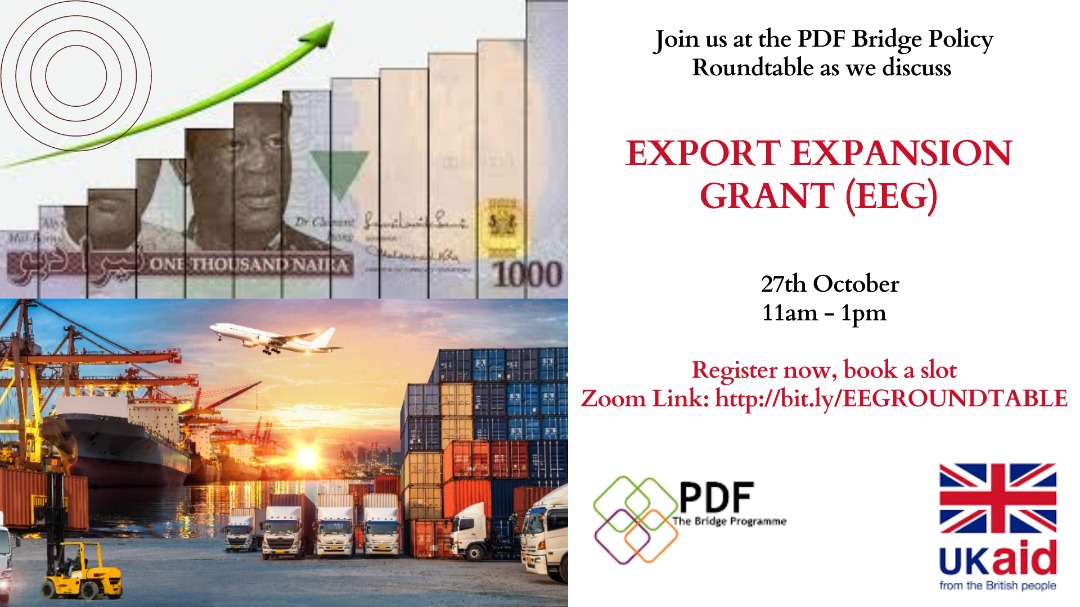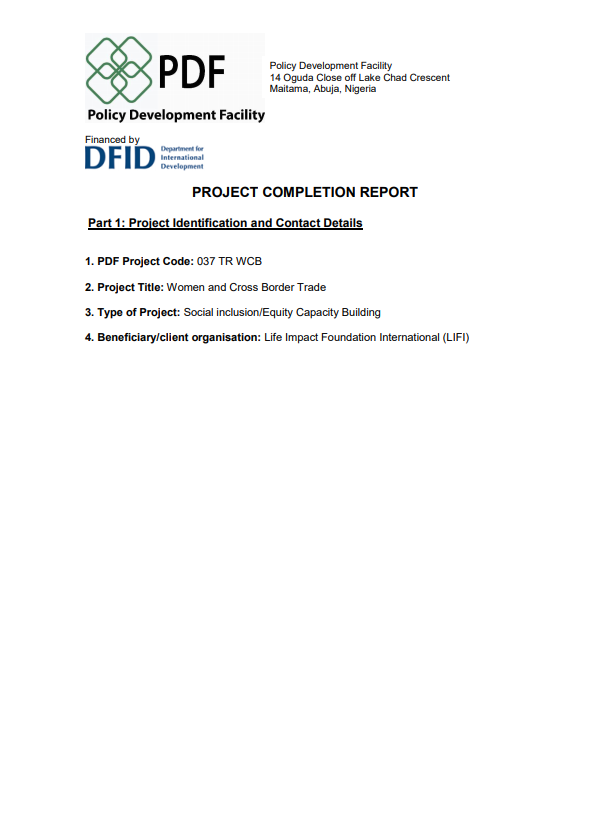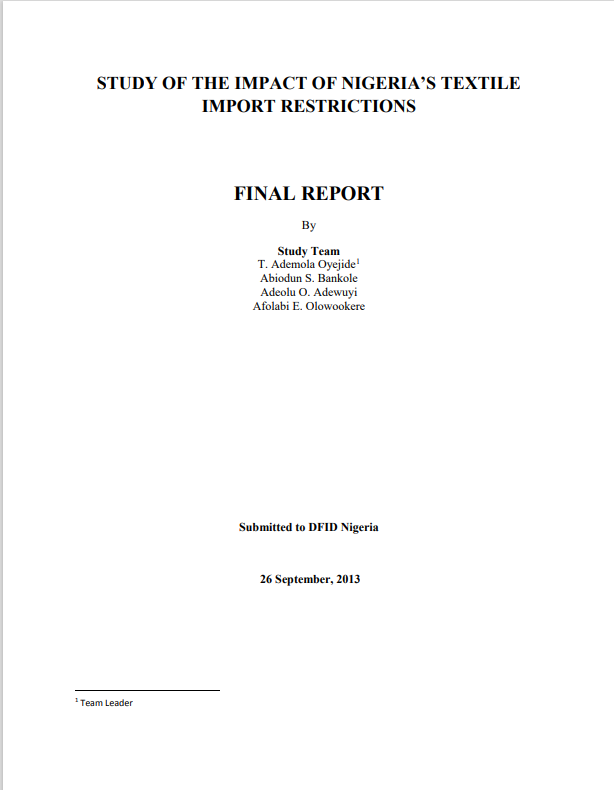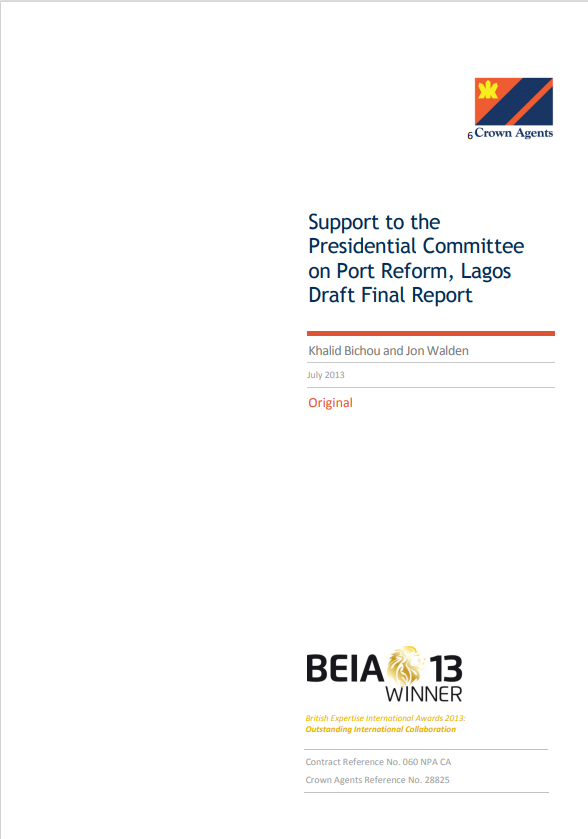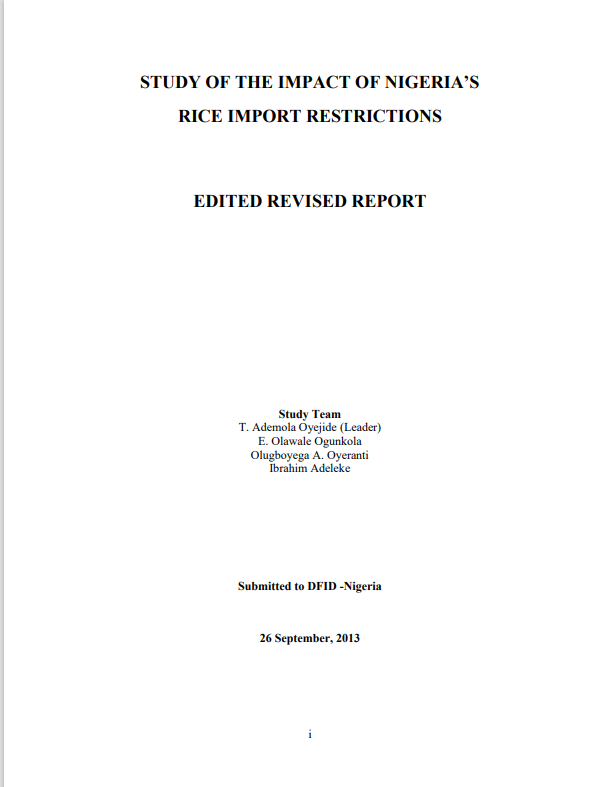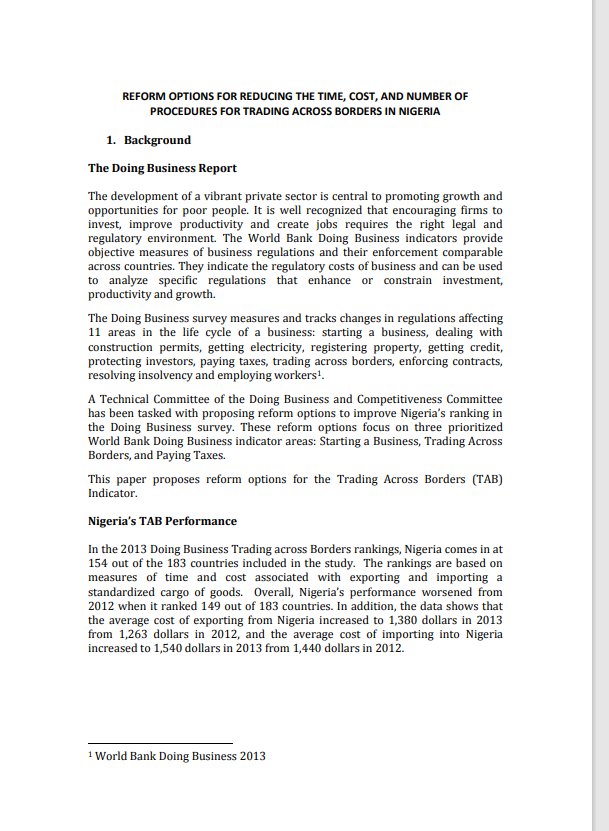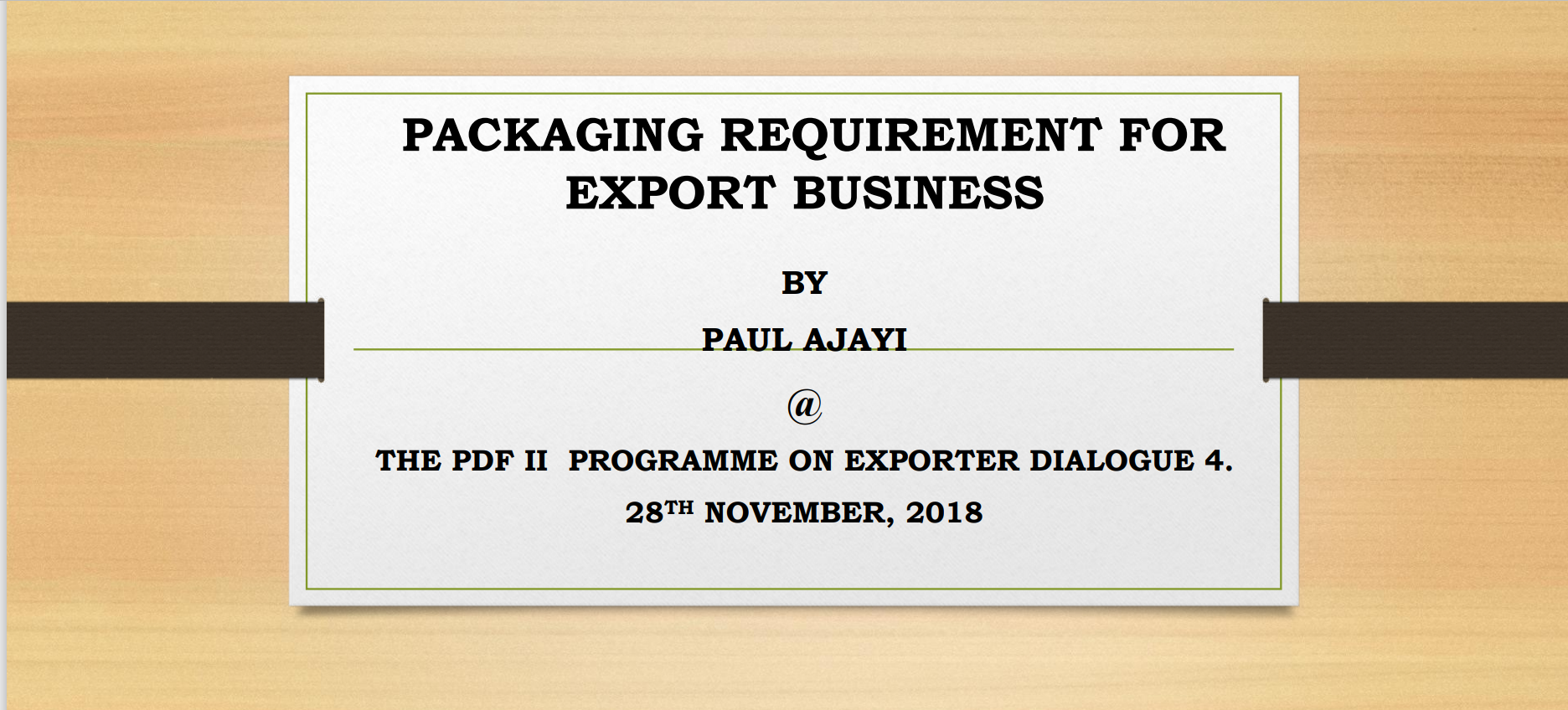PDF II held a two-day capacity building training themed: “Capacity Building for Banks and DFIs”. This is designed to explore access to finance challenges, awareness campaigns, and opportunities that non-oil exporters face with banks in accessing finance. The capacity building covered topics such as Export Industry Regulations and Documentations, payment methods and trade finance instruments, Handling export finance options, managing export risks, understanding the franchising potential etc.
Resource Materials (4-Part Training)
The Trade Policy Work Stream conducted a needs assessment to get direct feedback from export-oriented MSMEs, export-supporting government institutions, and export business service providers to ascertain the capacity gaps. The top 5 challenges highlighted by the respondents include lack of market linkages, lack of finance, lack of market intelligence, limited knowledge of destination country requirements, and Export documentation.
In response to their needs, TRD workstream designed a targeted capacity building for the non-oil export community of practice to address the knowledge and skill gaps through a 4-part Export Capacity Building (CB) Series. The following topics were covered in this sequence:
- Market Entry strategies (with case studies: Europe (EU), US, China)
- Raising Finance for Your Export Business
- Understanding Export Documentation
- Branding and Packaging for export
A Roundtable on the Export Expansion Grant
Export Expansion Grant (EEG) was established under the Export Incentives and Miscellaneous Decrees of 1986 and amended into an Act in 1992 to accomplish the diversification agenda of the Federal Government of Nigeria (FGN). Other export support funds created under the same Act are the Export Development Fund (EDF) and Export Adjustment Scheme Fund (EASF). The funds have been repositioned in the Economic Recovery and Growth Plan (ERGP) of 2017-2020. The EEG is a post-shipment incentive scheme aimed to achieve three key objectives: (i) to enable exporters to expand their businesses more conveniently, (ii) make Nigeria’s non-oil export more competitive, and (iii) facilitate greater and faster foreign market penetration.
PDF II (now PDF Bridge)’s Trade Policy Workstream funded a study on “Analysis and Impact of the Export Expansion Grant on Export Potential, Market Access and Export Competitiveness in Nigeria”. This policy roundtable discussed the findings and recommendations from this study.
Women and Cross Border Trade
This study conducted by PDF with support from FCDO (formerly DFID) shows that women who engaged in cross border trade contribute to food security by trading food products from areas of surplus to areas of deficit. The paper reveals that depending on how this trade is organized, these women have the potential to contribute significantly to household earnings and resources. This empowers women by giving them financial independence and control of their own resources.
STUDY OF THE IMPACT OF NIGERIA’S TEXTILE IMPORT RESTRICTIONS
This study focuses on the determination of the impact of Nigeria’s textiles import restriction. Specifically, the study describes the structure of the global and Nigeria’s textile industries as well as the global value chain, and the policy environment surrounding the industry in a global and national perspective. It was conducted in 2013 with support from FCDO (formerly DFID).
Support to the Presidential Committee on Port Reform, Lagos Draft Final Report
This report conducted in 2013 analytically quantifies Lagos ports’ efficiency by traffic and cargo type both internally and vis-à-vis international benchmarks, with poor efficiency scores being recorded in container operations most notably at the landside interface. It examines Lagos port concessions particularly with regards to their activities, size of investments, duration, performance requirements. The analysis shows that there is a need to audit and review the existing concession arrangements and properly plan and design future ones. It provides a summary of recommendations along with an action plan for implementation and improvement. This was done as part of the FCDO (formerly DFID) PDF project Support to the Presidential Committee on Port Reform.
STUDY OF THE IMPACT OF NIGERIA’S RICE IMPORT RESTRICTIONS
This study discloses that import restrictions on rice have focused largely on the demand side, playing down the required governmental attention on supply. It recommends that government needs to focus more on supply enhancing policy initiatives in favour of local production.
REFORM OPTIONS FOR REDUCING THE TIME, COST, AND NUMBER OF PROCEDURES FOR TRADING ACROSS BORDERS IN NIGERIA
The lack of improvement and deterioration in Nigeria’s export trade performance rankings such as measures of time and cost associated with exporting and importing a standardized cargo of goods reinforces the need for Nigeria to undertake urgent and extensive reform to improve its trading across borders performance. This research provides immediate, medium and long term reform options.
Maximizing the Potentials of Trade Agreements: Free Trade Areas and Expectations from Brexit
This report presents a comparative assessment on how to minimize the risks and maximize the benefits of AFCFTA and expectations from no-deal brexit.
PACKAGING REQUIREMENT FOR EXPORT BUSINESS
This report contains vital information on packaging requirements for intending importers and people already in export business. It showcases different types of packaging and packaging materials, labeling and barcode.



